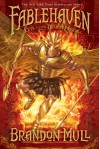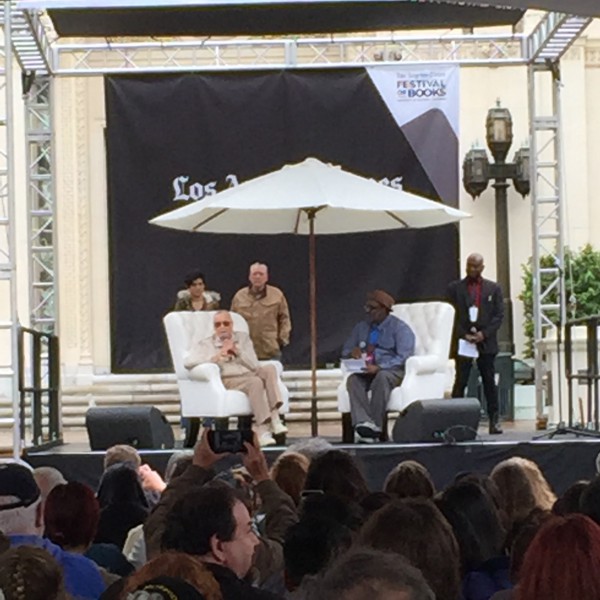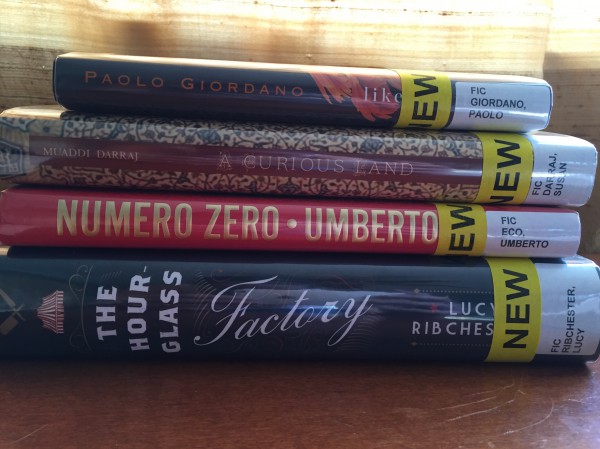Reader! Reader!
Literary fiction, classics, dystopian, history, memoir, prize winners, and of course the 1001 books. You really might catch me reading anything!
The Two-Family House
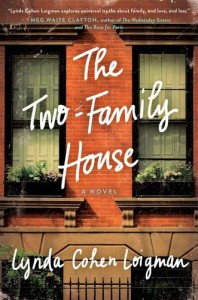
There is absolutely nothing wrong with the writing or cadence of this novel. It is also very "clean" (no cursing, no sex scenes, no gore--my mom's kind of book, basically). And all that is fine too, because a good author should not rely on sex and violence to keep a book interesting.
My hangup with this novel is the "surprise". Though not stated outright, it is very obvious within the first 50 pages. And then the entire rest of the book is the reader waiting for the characters to figure it out. So, while the story could have been great, it was mostly frustrating.
Nimona

A book about a bad guy.
Who gets an uninvited sidekick.
Who has amazing magical abilities.
And wants to kill his enemies in the kingdom.
How can this book be so sweet? Sure the storyline is about a bad guy, his good guy/ex-best-friend nemesis, the "rules" of their ongoing battle, and the kingdom. But what it's really about is friendship, love, kindness, and doing the right thing.
Amazing, Fantastic, Incredible: A Marvelous Memoir

I took the 7th grader to see Stan Lee speak at this year's LA Times Festival of Books--and Lee was great! Funny and honest and just all-around entertaining. We left with this book. The boy read it the next week, and really enjoyed it.
I am finally finishing now--my library queue has been keeping me too busy! After hearing Lee speak, I am amazed at how this book captures his personality. His style of speaking, his enthusiasm for everything--but then a graphic novel lends itself to that. Much of what is in the book is what he discussed at the festival (there was more on the movies and less on the early years of his career at the event).
No, I didn't love this book like my kid. But he's the huge Marvel fan. What I appreciate most about this book is the fact that Lee included the difficult times in his life. Personal and professional problems are in here. He does not make his career and life seem perfect or easy, in spite of his huge success. And that is a great thing for any fan--and any kid--to know.
Sleeping Giants

It's always fun to find a science fiction book I enjoy, because I am soooo picky. This is the first in a new series, so I have quite a few questions that I imagine (or hope) will be answered in the upcoming volumes.
Neuvel writes this novel as a series of interviews, recorded diary entries, and reports. A mysterious interviewer seems to know all--but then he is interviewed by anther mystery man. Who knows what, who needs to know, who thinks they know, and who knows less than they think is all a part of this story.
And this story is clever--rather than ending with "oh it was aliens!", as way too many sci fi books do, this book starts with a strange discovery. After studying the found objects, the characters know aliens have been on Earth. As they work out what these giant metal (?) body parts are, and how to find them, put them together, and use them, they learn more. Or some characters do--others already know. Who were these aliens? Are they us? Are they coming back? Why are Kara and Vincent able to work the helmets? Will this bring about world peace or world destruction--or intergalactic warfare?
Looking forward to book #2.
Numero Zero

I loved the buildup and idea of this novel: creating a newspaper that will guess/investigate upcoming scandals. But it's not meant to ever exist--it is meant to get the creator/owner into the "inner circle" of publishers. By scaring the existing paper publishers with his incredible newspaper that will not report what has happened, but what might happen. And to do this, his team will create 12 "fake" papers based on past dates. Because it's easy to predict the news when it is in the past. And the paper isn't really the point at all--it's actually to be a book on the fake paper that will be ghostwritten by one of the staff. Only the editor and the staff writer know this.
It all sounds so absurd.
And then one of the editors begins researching a conspiracy theory involving Mussolini, his double, the WWII left-behinds, the CIA, the Vatican, Argentina, etc. His fellow staff think it sounds crazy (and suspect he is crazy).
Great build up, but I found the ending to be a let down. That guy ends up dead. Was it random, or did the CIA/Mafia shut him up? "Paper" is shuttered. But then the BBC has a documentary that is even crazier than his theories--complete with participant interviews. So was his murder random after all?
 1
1
Now and Again

Wow this one is hard to review. There are 2 separate storylines here--that of Maggie and the rest of the folks in Red Bud, where a munitions plant keeps the war effort stocked and a prison of inmates is used for some sort of labor. And then there are Penn Sinclair, Danny, Pig Eye, Le Roy, and Joe Kelly--a group of soldiers who had been together in Iraq and have largely come back together to expose the lies of the war effort to the American public.
The only character in both of these stories is rather minor--Dolly, Danny's girlfriend and a midwife in Red Bud.
I kept expecting these 2 stories to come crashing together to resolve something. But it never really happens. And nothing is really resolved (not that the issues in this book could truly be, since they are real and they are current and ongoing in real life). Yet what one might expect if this were to go down in real life doesn't really happen either. Or at least Rogan doesn't actually finish that part of the story.
So, ultimately this was disappointing.
April Round Up
I thought this was going to be a mediocre month, because I got severely bogged down in a 1001 books list book for over 2 weeks. And I finished it on May 1, so it shows up next month! It turns out the first 2 weeks of the month were much better, and I had already forgotten. Which is why I keep lists in the first place....
Books completed: 10
1001 list books: 2
Nonfiction: 2
New fiction (2015/2016): 4 (including 1 new translation)
Poetry: 1
YA/middle grade: 2 (both from my 7th grader)
In translation: 3
Women authors: 4
Authors of color: 1
Deep Rivers

My edition of this book (which has the same ISBN as the edition I chose, but looks different and comes in at just under 250 pages) took me over 2 weeks to read. Over 2 weeks for fewer than 250 pages. Clearly, I did not love it. This book bogged down my reading, big time, and I have a huge stack of library books I might not get to because of it. Ah well, I can always request them again.
——————
From everything I have read (the intro, the afterword by Llosa, and the goodreads description), this novel is a semi-autobiographical account of Arguedas' childhood. Brought up by Indians, when he re-entered Latino society, he found he did not fit in. But he didn't fit into Indian culture either, being Latino and not native.
I know I have to be missing some (read: many, or maybe all?) cultural clues in this book. I struggled to know who was Indian and who was not—at the seminary school, the boys have a huge hierarchy (very Lord of the Flies-esque, another book I did not love). I could not understand how this hierarchy was determined. Wealth? Looks? Smarts? Plain old popularity? To me, this book was about a boy who had been brought up on the road, traveling with his father from town to town and not getting to stay anywhere for as long as he would like. And his father then leaves him at this seminary. And yes, he does not fit in, but that is because he has never needed to or had the opportunity to live amongst the same people for long, and his father does not visit nor write. He is all alone, trying to make friends (and he does, though it is hard and he is an outcast). He simple does not know how to function in a stable society.
The descriptions of the natural world--birds, bugs, landscape--were my favorite parts. I googled many of the trees and birds to see what they really look like. It made me laugh when one of the birds turned out to be a South American mockingbird. And yes, the description sounded like one!
Interestingly, the 1001 books summary sees this book more how I read it. The clueless non-Latin-American interpretation, perhaps.
Also, much of the language in this book reminded me of Calvino's Invisible Cities (which I did enjoy). I read both in translation, which strikes me as--odd. Something about the cadence of the writing.
Keys to the Demon Prison (Fablehaven #5)
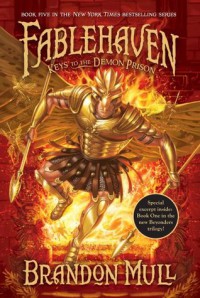
The final book of the series! And I have to say I am so impressed with how the story wraps up. The final solution is clever and smart--and completely believable (assuming you can handle the dragons, wyverns, demons, etc etc).
I also very much like how Mull includes a final chapter on how this really is the last in the series. There will be no surprise continuations in a few years. He is moving onto other things. Which is great--maybe we will see some of these characters again, or maybe not. It will not be in the context of Fablehaven, in any case. I think with a middle grade/YA series (this series kind of straddles that divide) it is even more important to just end it. The audience shifts as kids become old enough to read these, and the others age out. My 7th grader finished this last fall, he has read 1+ a year since 4th grade. His reading has improved dramatically over that time. But he too is ready to move on. This was his favorite of the series.
Felicity

While the front book flap says this is a collection of love poems, I felt that the first set, "The Journey" were more about nature. I liked this group the most, and Meadowlark is my favorite poem in this book, with Storage coming second.
Oliver uses words that I find awkward. Even Meadowlark ends with "posthaste"--which kind of ruins the melancholy of time passing that she so successfully created. It's so...abrubt. Though I the old-fashionedness of it supposed to also show her age, and thus the time passing?
Buried in Shades of Night
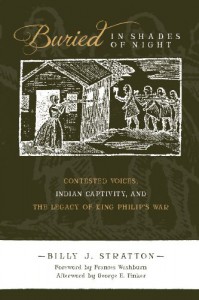
So I got this book from my library after I recently read Flight of the Sparrow by Amy Belding Brown. While it was interesting and very readable, Brown went crazy modernizing real people. I was curious to know where scholarship actually stands on some of these issues.
—————
This is the first jargon-filled academic history I have read in years. In many ways, it made me not miss grad school--but boy do I wish I had someone to hash this out with right now. And to discuss the overused piece of jargon "rhizomatic".
So this book looks at Rowlandson's narrative--and whether it was really written by Mary Rowlandson, or if it was actually transcribed/written by Increase Mather. But what his actual theses are (and I believe there is more than one in here, which is where this book goes astray):
• Captivity narratives were part of the war (his word) to dispossess natives of their lands by making the general public on both sides of the Atlantic scared.
• Even today academic historians fully use these narratives as historical ethnographic documents—even though they represent just one side of the war. I was in history grad school 20 years ago, and we discussed this then—in fact, we discussed this in my undergrad years which were over 25 years ago, so I don't think Stratton really needs to try to make this argument. One of his examples isn't even an academic historian.
• Native voices must be found (true!). He doesn't offer any ways of doing this, which is frustrating, because I would love to read any such sources, as I like reading subaltern sources to see another side. He only briefly mentions one letter, but does not say where it can be found (it may well be in a courthouse or library, unpublished).
Mostly this book struck me as angry. While he argues that there is more than one side to any history (true!) and that they should all be studied, he actually only wants to study the Native side here because he deems it the right one. The current historians he complains about all seem to be women (one I cannot tell based on the first name), when insulting male historians he goes back to men publishing in the 1960s and earlier—which I don't think anyone would consider up to date, I have actually ever heard of any of them, despite being an American history major and grad student over 20 years ago (they were out of fashion even then!). Meanwhile, the conclusion (by another author) announces that white historians are of the Euro settler class and simply cannot write any history having to do with native subjects. Period.
Meanwhile, the text of this book is only 149 pages (notes and sources add more). So I very much feel like he tried to argue too many things, rather than focus on just one thesis and fully examine it.
And Stratton would hate Brown's novel. He would not want to see Rowlandson be nice, at all, nor would he want her to seem sympathetic. However, he agrees that Mather wrote or transcribed and edited the actually narrative.
But yeah. I don't miss grad school.
 1
1
The Nest

What happens when four middle-aged siblings, raised by a narcissistic mother and a late largely absent (working) father, find out that the NEST egg trust fund their father set up for them to receive in mid-life is going to be much less money than they expected? Only because their mother used to save her favorite from a legal issue? Anger. Betrayal. Reflection. Appreciation. And the 3 unfavorites discover they like each other more than they realized.
A clever idea interestingly written. Most of the characters are fairly despicable--the favorite brat (Leo), the sad writer whose promising career flamed out (Bea), the gay man who can't keep a business afloat and lets his well-paid lawyer husband bail him out repeatedly (Jack), and the needy cryer (Melody). And of course mom (Francie), who uses her children's nest egg for her favorite so that she doesn't have to dip into her own funds. Sweeney did a good job writing such different characters, as well as writing very different spouses/significant others, children, co-workers, neighbors.
I found the end a little too pat and unlikely, though Bea is definitely the most realistic of the siblings. And, as Walt says, "It will all work out."
 3
3
Growth of the Soil
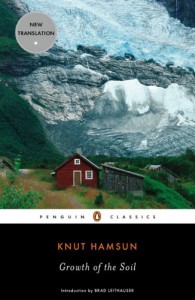
Very different from his novel Hunger, here Hamsun has written a sweeping story of one man's accomplishments as a homesteader in northern Norway near the border with Sweden.
Isak, a young and very strong man, with no fear of work, goes looking for a good place to settle. He walks and walks, looking for a place that has everything he needs: water, haying grounds, pasture, areas to farm, timber.
When he finally finds it, he settles in. There is a coastal town a full day's walk away (20 miles? 10 miles?). He puts out word that he needs a woman's help--and lo and behold, Inger comes. She too has no fear of work, and she has a harelip--teased for much of her life, she finds a good man in Isak.
They work, they have several children, Inger is imprisoned for 6 years. Others come and settle the area between their farm Sellanra and the town.
A fascinating story of rural northern Norway in the 2nd half of the 19th century.
Like Family
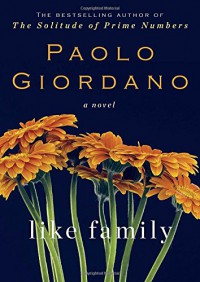
This little book as sold and shelved as a novel. But it reads like a memoir. And on a page before the TOC, Giordano writes that there was a Mrs A in his life, this was inspired by her, is an homage to her, details have been changed. But not the detail of the narrator's job--he is a physicist, and Giordano has a PhD in particle physics.
The title tells all—"Like Family". Mrs A, their son's nanny, has been with this family since Nora was on bedrest while pregnant with 9-year-old Emanuele. Previously, she had been Nora's father's domestic help. She runs the household, knows everyone's quirks, and loves the boy. When she is diagnosed with cancer, what will she do? What will they do? Long widowed with no children of her own, her closest family are some cousins. Nora, her husband, and Emanuele are like family--they worry, they cry, they reassure, they take Mrs A for appointments, they help, they encourage. But what does being "like family" get from distant relatives? What can you do at the end?
This book reads so strongly like a memoir that I am sure many would consider it good writing. Personally, it just makes me uncomfortable. I love memoirs, and I read a fair number. And I would much rather read Giordano's true account of their time with his Mrs A. Though being "like family" and not "family", maybe that idea wouldn't go over well with the cousins?

The Los Angeles Times Festival of Books is this weekend. Of course, this is the 3rd or 4th time it has rained this year (our MONSTER El Niño, haha).
We have been planning to go since last year. But I kept a little secret from my 7th grader until this morning. That secret was Stan Lee, at 11am, on the main stage. Free, no tickets required.
And we got there in time to get good standing spots, in spite of the fact that hubby cannot get anywhere on time and dawdles constantly. And the mics worked! We could see and hear!
We did not get an autographed copy of his graphic memoir, just a plain one. We would have had to be truly early--and I am pretty sure that the folks who got their copies signed did not get hear him speak. And he was great. It was an interview format, and he was funny. Kid is happy, that interview made his day. He loves Marvel.
 3
3
I have cards for 3 library systems, 2 of which I use regularly.
My local branch in the larger system is my go-to. The system is huge, I can get just about anything sent here. And I also like to browse and pick random things off the shelves. New fiction, new nonfiction, popular fiction (trade paperbacks), and the regular stacks.
But the smaller system displays their new fiction face-out, rather than spine-out. I find this irresistible. While I can walk out of my branch with one new fiction book easily, I can't manage that in this other system.
Instead this happens. Will I read all of these? I don't know. I have heard of exactly one of these authors (ha ha—guess who?) and none of these titles.
Shiny new clean books. *sigh*














